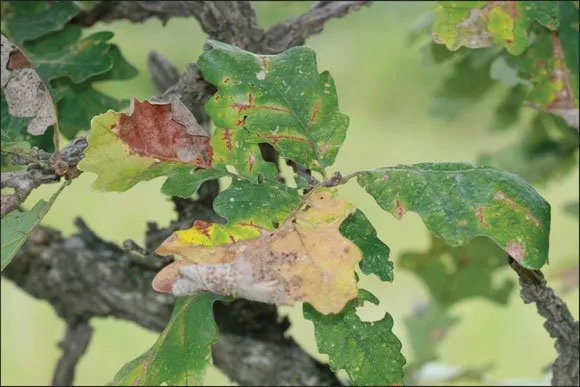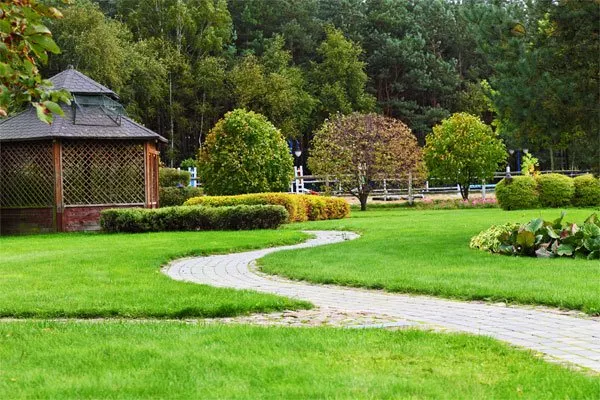Emergency News
Important Message About Landscaping, Lawn Care, and Tree Care During the COVID-19 Outbreak in Illinois
Please read below a joint statement from the Illinois Landscape Contractors Assocation, the Illinois Green Industry Assocation, and the Illinois Arborist Association regarding green industry work during the “Stay-at-Home” Executive Order issued on March 20, 2020.
Local government officials:
Due to the high visibility of landscape contractors in your communities, our three organizations felt it would be wise to provide guidance to municipal government officials on landscape industry businesses during the “Stay-at-Home” Executive Order issued on March 20, 2020. We feel the more information municipalities have will improve communication with your communities and service providers. This will help answer resident questions if they arise.
The landscape industry requested additional information from the Governor’s office about whether lawn, landscape, and tree services were essential services under Section 12, Paragraph H of the Executive Order that reads:
Critical trades. Building and Construction Tradesmen and Tradeswomen, plumbers, electricians, exterminators, cleaning and janitorial staff for commercial and governmental properties, security staff, operating engineers, HVAC, moving and relocation services, and other service providers who provide services that are necessary to maintaining the safety, sanitation, and essential operation of residences, Essential Activities, and Essential Businesses and Operations;
Although landscaping is not mentioned by name, landscape services were verified as essential by the Illinois Department of Commerce and Economic Activity on March 23, 2020. They released an FAQ document on essential businesses that reads:
Can residential and commercial lawn service remain open?
Yes. Many landscape projects will fit under an exemption such as construction, agriculture, or public works. Outdoor landscape projects generally will provide for good social distancing that poses little risk of transmission, but it still is important to ensure the ability to wash or sanitize hands and take other precautions.
The FAQ document is included here: https://www2.illinois.gov/dceo/SmallBizAssistance/Documents/Essential%20Business%20Checklist3-22.pdf
This would include essential services for the following trades: landscape contractors (construction and maintenance), lawn care, irrigation, and tree care.
Additional information on green industry businesses: These fall under Section 12, Paragraphs A & B of the Executive Order
Garden Centers – These establishments sell materials for customers to produce fruits and vegetables at their residences, sell firewood, pet supplies, and other household essentials. They are adapting business policies and procedures to protect employees and customers, in alignment with CDC guidelines, while serving the needs of the community.
Nurseries, Growers, Greenhouses – These businesses fall under agricultural production and are listed as essential businesses under the EO.
Please share this information with your communities so they better understand what landscape and agricultural businesses are able to operate under the terms of the Executive Order set to expire on April 7th.
Regards,
Scott Grams
Executive Director
Illinois Landscape Contractors Association
sgrams@ilca.net
Kellie Schmidt
Executive Director
Illinois Green Industry Association
kellie@illinoisgreen.net
Jake Miesbauer
President
Illinois Arborist Association
jmiesbauer@mortonarb.org
BUR OAK BLIGHT

A serious leaf blight disease on bur oak has been recognized in several Midwestern States, including Illinois. Researchers in Iowa confirmed that this disease is caused by a new, and yet unnamed, species of Tubakia. The disease was named bur oak blight, or BOB for short.
BOB occurs only on bur oaks, primarily on naturally established trees, and especially on mature trees on upland sites that appear to be remnants of savannah forests.
Leaf symptoms typically first appear in late July or August. Infected leaves develop purple-brown lesions along the midvein and major lateral veins on the underside of leaves. Large, wedge-shaped areas of chlorosis and necrosis develop on the leaf blade, and major leaf mortality may occur. The symptoms of wilting and leaf scorch resemble, and have been confused with, symptoms induced by oak wilt. A unique feature of BOB is that some of the killed leaves remain on the tree during the winter (healthy bur oak trees shed all of their leaves in the fall)
Over time, severely affected trees may die. Boosting tree vigor may prolong the life of affected trees and ward off invasion by secondary pests. In preliminary studies, injections of the fungicide propiconazole in late May or early June (prior to leaf symptoms) have reduced symptom development in the fall and the following year. For more information of Bur Oak Wilt, feel free to contact one of the Kinnucan Arborists.
Weather the Storm with Kinnucan Tree Expert and Landscape Company

‘Tis the season of unpredictable weather. The ever changing weather often comes with little or no warning. Severe storms, high winds, flooding, tornadoes and the occasional freak hail storm can destroy property and even cause loss of human life. To complicate matters more, the aftermath can be even more dangerous if not handled with precaution and expertise.
Being proactive and planning for emergencies is vital for safety and survival. Kinnucan Tree Experts and Landscape Company can guide you on how to weather the storm safely and we are available to pick up the pieces after the storm, regardless of day or time. Our expert emergency team is available 24/7. We are proud to announce we have been voted “The Best of the Best” in Lake Bluff and Lake Forest after the devastating storm that took us by surprise in June.
Fallen trees can cause all sorts of chaos. Blocking roadways, knocking out power lines, severe property damage to homes, commercial buildings, automobiles, you name it. No fixed, or even moving, object is safe when a tree is coming down with force. It is important to have an expert remove a fallen tree to avoid the untrained unforeseen dangers that could result and cause even more damage; or even severe injuries and possible death.
Tips on how to Weather the Storm Safely:
Having a safe plan to protect your family in the event of dangerous weather and emergency situations is extremely important.
- Have a disaster supply kit readily available.
- Have a plan:
- Designate and know where your “safe place” is.
- A meeting spot if you were to be separated.
- Know who your out of town contact is and how to contact them.
- Know where your disaster supply kit is located.
- Take pictures or videos of your home, its contents for insurance purposes. Keep at a friend’s home.
- Know where your gas and water shut-off valves are located.
- Have cash on hand. (power outages means no ATM or Credit Cards)
- Fill your car up
- Include pets in your plan. (This includes making sure their vaccinations are up-to-date).
- Listen to emergency announcements and follow directions. THIS IS KEY!!!
Tips for After the Storm:
- Contact your out-of-town person and other family members to let them know you are okay.
- Continue to listen to emergency announcements:
- Wait for the “all clear” before returning home or leaving your “safe room”.
- Access damages in your home.
- Contact your insurance provider to report damages.
- Clean spilled chemicals – medicines, bleaches, gasoline and any other flammable liquids.
- Again, include your pets: Confine them during clean-up; use a leash when re-orienting them to the new environment of the home. If you cannot locate your pet after the disaster – contact your local animal control office immediately.
- Be neighborly; make sure your neighbors are okay – especially the elderly and disabled.
- Repair and block access to anything in your home that is damaged and can be dangerous.
- Stay away from downed power lines.
- CONTACT AN EXPERT to remove trees and large debris.
Following a few simple steps and preparing for the worst is the safest measure. As the old saying goes, “it is better to be safe than sorry”. We are here to help you prepare for the worse and will get you back to the best safely. Call our expert team if you have any questions.
